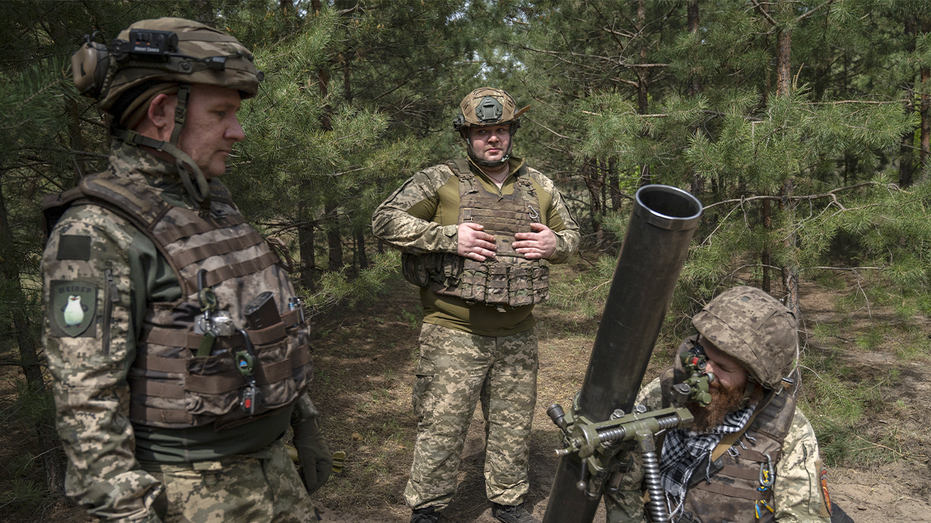Bridge Explosions in Russia Near Ukraine Border Heighten Tensions Ahead of Peace Negotiations
Explosions along the Russian border kill seven and injure 69, with officials blaming Ukraine for sabotage amid tense peace negotiations.

At least seven people were killed and 69 others injured in a series of dramatic explosions that targeted two critical bridges in Russian regions bordering Ukraine over the weekend. The blasts, which occurred just hours apart late Saturday night and early Sunday, have intensified tensions ahead of highly anticipated peace talks intended to address the three-year-old conflict in Ukraine.
The first explosion struck at 10:50 pm local time in Russia's Bryansk region, shattering a highway bridge spanning a railway line. At the moment of the blast, a passenger train carrying 388 individuals was passing underneath. Dramatic images shared on social media depicted traumatized passengers scrambling to safety amidst the mangled wreckage, with several train carriages crushed beneath concrete debris. Rescue teams worked through the night to free those trapped and treat the wounded.
Merely four hours after the initial attack, a second blast obliterated a railway bridge in the neighboring Kursk region. This time, a freight train was caught in the destruction, hurling debris and parts of the train across a neighboring highway, further complicating rescue efforts and heightening fears among local residents. Authorities quickly moved to cordon off both sites, while investigators described the incidents as a coordinated act of sabotage.
The Russian Investigative Committee, tasked with probing major crimes, has directly linked both explosions, asserting that evidence points to deliberate attacks targeting transportation infrastructure at a critical moment. "The bridge was blown up while the Klimovo-Moscow train was passing through with 388 passengers on board," said Alexander Bogomaz, Bryansk’s regional leader, during a televised interview.
There has been no immediate comment from Ukrainian officials regarding responsibility for the attacks. However, the timing has drawn widespread speculation, especially since the blasts occurred on the eve of scheduled talks in Istanbul aimed at brokering a ceasefire. The United States, which has pressed both sides to negotiate, estimates that the ongoing war has resulted in the deaths and injuries of over 1.2 million people.
In a separate development, Ukraine's HUR military intelligence agency reported a blast derailing a Russian military train in Russian-controlled Zaporizhzhia, though it did not claim direct responsibility or identify perpetrators. Ukraine has previously claimed responsibility for several operations behind Russian lines, deepening suspicions over its role in the weekend bridge attacks.
Russian politicians have swiftly blamed Kyiv, framing the bombings as a clear attempt to undermine emerging diplomatic efforts. "This is definitely the work of the Ukrainian special services," stated Andrei Kartapolov, chairman of the defense committee in Russia’s lower house of parliament. Other officials echoed his sentiments, arguing that the attacks were meant to harden Moscow’s negotiating stance and intimidate civilians ahead of peace negotiations.
President Vladimir Putin was kept informed of developments throughout the night by security and emergency officials, according to Kremlin spokespeople. The Russian leader also held calls with Bryansk’s governor as investigators combed through the wreckage for clues and secured the affected areas against follow-up attacks.
Meanwhile, U.S. President Donald Trump has reiterated his demand for an urgent resolution to the conflict, warning that he may withdraw U.S. support if talks falter—an ultimatum that could shift more responsibility onto European nations to back Kyiv militarily and financially.
Despite mounting international pressure, fighting across the region remains fierce. Both Russia and Ukraine continue to exchange drone strikes and launches along the front, while reports indicate that Russian troops are advancing at key positions in eastern Ukraine. Complicating hopes for progress, Ukraine is yet to confirm its attendance at the proposed talks in Turkey, insisting that it must first review any Russian proposals before engaging in direct dialogue. In the meantime, U.S. lawmakers have warned Moscow of “hard-hitting” new sanctions should violence spiral further.
As the dust settles in Bryansk and Kursk, the attacks on vital infrastructure underscore the fragility—and volatility—of the current phase of the war, threatening to derail diplomatic momentum before talks have even begun.




